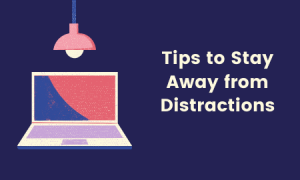Danger by shawnzrossi
Is your (new) website putting you at risk of a penalty? There are 3 key points to look at in more detail when determining whether your website might be putting you at risk:
- Spammy/Low Quality or Duplicate Content
- Spammy On-Page Optimization
- Old & New Backlinks to your website
1. Content
When looking at the content on your website, it is important to ensure first and foremost that it is quality content.
Is the content you are putting into place going to provide your consumers with the information that they require, or are you just looking to fill space? You want to ensure the content on your website is informative to the user first. Only then mention some SEO keywords that you may be looking to target. It is important to recognize when your content might be feeling a bit “stuffed” full of keywords. You want to ensure a good balance – not too much, but not too little. If your content seems un-natural sounding, it probably seems un-natural to Google too!
Secondly, it is important to ensure that all content is unique. Don’t use someone else’s content. But also avoid duplication on your own website (even if you wrote it). Google doesn’t like to see page after page of the same content used again and again.
Areas that are easily overlooked is content in the header and footer of a website. Sometimes there is a paragraph of content in your footer. When this is duplicated across all pages on your website, you may find that this could cause you some problems.
Keep the content on your website new and exciting! This doesn’t necessarily mean updating your home page content, or about us content every month – but you do want to give Google a reason to keep revisiting your website. A great suggestion to keep your content new and exciting would be through a blogging strategy. Blogs are a great opportunity to put fresh, unique and relevant keyword rich content on your website on a weekly, bi-weekly or monthly basis.
2. On-page Optimization
When it comes to the on-page optimization of a website there are many things that you could be doing that could get you in trouble with Google. When optimizing your title tag, meta description, header tags and content you don’t want to come across as too “spammy”, packed full of keywords.
To optimize your website in terms of best practices the easiest rule of thumb to consider when adding keywords to either your title, meta description, header tags or content is to ask yourself “does this seem unnatural?” If your website sounds & seems unnatural to you, it probably does to Google too! A
ccording to the guidelines set out by Google, the information on your website should be useful, information rich, descriptive and accurate – too many keyword mentions can take away from this.
Also, don’t forget; hidden content is frowned upon by Google – you are not “optimizing” your on-page by hiding paragraphs of content with keywords. While SEO needs to be kept in mind, remember that you are making your website for the users, not the search engines.
3. Backlinks Pointing To Your Website
Stay on top of the backlinks pointing to your website. Whether your website is new or old, it doesn’t mean that you can go without monitoring the links pointing back to your website. If you have done previous SEO, there may be links that were at one point relevant in Google’s eyes, and have since been flagged as spammy or low quality links. With the launch of the Penguin 3.0 in October, 2014, monitoring your link profile continues to be an important aspect of any SEO campaign.
In the same respect, even if you have never done any link building previous, you may have competitors trying to sabotage your website and get you in penalty by building “black hat SEO” links to your website. It is important to monitor your website stats through different sources to watch for Negative SEO, and clean up link profiles as necessary.
Next Steps
- Traffic loss or penalty? ” When to call in the SEO detectives (Matt Janaway)
- How to Avoid an SEO Penalty with Google Analytics Alerts (Bill Flitter) – Ed.: nice use of Google Analytics Alerts!
- 4 Steps For Protecting Your Website From Google Penalties (Daniel Kosir)
Post from: Search Engine People SEO Blog
3 Things That May Put Your Website At Risk
—
Written by Kristen Godel,
The post 3 Things That May Put Your Website At Risk appeared first on Search Engine People Blog.
(274)





